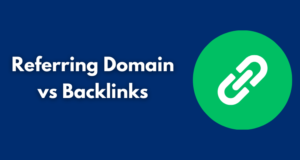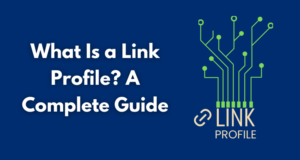Table of Contents
ToggleI. Building a Strong Foundation with Real-World Experience
Starting your career is always exciting—and sometimes a little overwhelming, right? Especially when you don’t just want a job, you want a career that grows and thrives with you. If you’re a fresher diving into the professional world, an SEO internship can be one of the most solid stepping stones out there. Why? Because it helps you build a robust foundation with real-world experience. Let’s talk about why that’s a game-changer for you.
First things first: theory from lectures or online courses is great, but practical application is where the magic happens. By actually working with an organization’s website or digital content, you get hands-on exposure to what really happens in day-to-day SEO tasks. And trust me, it’s way more exciting than just reading about meta tags or crawling errors!
Why Real-World Experience Matters
- Hands-on learning: Think of this as the difference between reading about how cars work and actually driving one. An SEO internship gives you that steering wheel. You’ll be optimizing content, researching keywords, or even improving a website’s ranking on Google.
- Bridging the knowledge gap: Freshers often have academic knowledge, but no idea how that translates to actual tasks. Internships help bridge that gap so you’re more industry-ready when job opportunities roll around.
- Confidence booster: Knowing that you can take what you’ve learned and achieve real results gives you a sense of accomplishment—and that confidence sticks with you as your career grows.
Learning Through Challenges
Now, let’s not sugarcoat it: you might make a few mistakes along the way, but hey, that’s where the learning is! Figuring out why a particular keyword isn’t ranking or realizing you’ve been targeting the wrong audience teaches you lessons you’ll carry throughout your career. This trial-and-error phase during an internship isn’t just beneficial—it’s absolutely essential. Failure sounds scary, but in reality, it’s a stepping stone to success.
Working on Actual Projects
During an SEO internship, chances are you’ll be involved in various projects—think blog optimizations, finding SEO gaps, or even contributing to the creation of a website’s SEO strategy. These aren’t textbook exercises; they’re real-world problems where you’ll get to see immediate results from your work. A website starting to rank higher because of your keyword research or link-building work? Now that’s what we call rewarding!
Creating a Portfolio
Here’s the cherry on top: these projects don’t just teach you skills, they’re also proof of your abilities. By the time your internship ends, you’ll have a portfolio of actual case studies to showcase to potential employers. Doesn’t that sound way cooler than just listing academic projects on your resume?
Advice From the Pros
A little nugget of advice: when you’re on your SEO internship, treat every task—no matter how small—as an opportunity to learn. Ask questions, absorb feedback, and seek out chances to grow. And remember, starting at the ground level is how a skyscraper gets built. Your SEO internship is that solid ground beneath the career skyscraper you’re about to build.
In short, an SEO internship is like boot camp for digital marketing professionals. It’s where you learn the nuts and bolts of the industry while gaining experience that truly matters. So, if you’re a fresher considering your next move, jump in—you’ll be surprised at how much you walk away with!
II. Understanding How Search Engines Truly Work

If you’ve ever Googled something (and chances are you do multiple times a day), you know just how integral search engines are to modern life. But have you ever wondered what’s happening behind the scenes when you type in a query and hit “Enter”? Joining an SEO internship is like lifting the curtain on how all this magic actually happens – and trust me, it’s fascinating!
The first thing to understand is that search engines, like Google, Bing, or DuckDuckGo, are much more than just big boxes you type into. They’re powerful, ever-evolving machines designed to organize and rank the internet’s endless information. Here’s the kicker – most people have no idea how they work, and that’s exactly where you’ll gain an edge during your internship.
The Basics: Crawling and Indexing
One of the key lessons you’ll learn during an SEO internship is how search engines rely on “crawlers” or “spiders” to scan websites. These bots work tirelessly to find new content and organize it in a massive index. Think of the index as a giant library catalog – it tells the search engine where specific information is located so it can quickly retrieve it for users.
Not everything gets indexed, though. As an intern, you’ll start to understand factors that determine which pages make the cut. Are they easy to navigate? Fast to load? Relevant to users’ queries? This knowledge helps you view websites the way search engines do – which is a total game changer.
The Magic: Ranking Algorithms
Ah, algorithms – the heart of how search engines determine the order in which pages are displayed. You’ll soon realize they’re not some mysterious sorcery. Instead, they follow structured rules designed to serve users the most relevant and high-quality results. These rules constantly evolve (hello, Google updates!), and part of your internship experience will be staying on top of these changes.
An internship provides insight into *ranking signals*, the specific factors that search engines use to evaluate websites. These include keywords, backlinks, site performance, and even user behavior. Once you get a grip on these, you’ll start to see why some sites land on page one while others languish on page 37. Spoiler alert: It’s not always about luck!
The Takeaway: Search Intent
Another invaluable lesson you’ll gain is the concept of “search intent” – why users search the way they do. Are they looking to purchase something? Solve a problem? Learn new information? Search engines aim to match the intent behind a query with the most appropriate content. As an SEO intern, you’ll get to dive deep into analyzing user intent, a skill that’s critical for crafting user-focused content strategies.
Why This Matters
- You’ll understand the “why” behind SEO strategies, not just the “how.”
- It positions you as a problem-solver who can tackle real-world marketing challenges.
- You develop analytical skills that go beyond SEO and are applicable in any digital marketing role.
Let’s be real – everyone uses search engines, but not everyone understands them. An SEO internship arms you with this insider knowledge, setting you apart as a valuable digital marketing professional who really “gets it.” What’s more, you’ll never be able to look at a Google search result the same way again – which is its own kind of superpower, don’t you think?
III. Gaining In-Demand Skills That Employers Value

Let’s talk about skills for a moment. You’ve probably heard the job market is competitive, right? Well, one of the best ways to shine and get noticed by employers is to bring some seriously in-demand skills to the table. Guess what? An SEO internship can help you acquire those skills and then some!
Why are these skills so crucial? It’s simple: businesses today thrive on their online presence. They want their websites to rank high on Google, drive traffic, and convert visitors into loyal customers. The professionals who can make that happen—SEO experts—are in hot demand. By joining an SEO internship, you’re not just learning a few tricks; you’re stepping into a field where your expertise can have a tangible impact on a company’s success.
Here’s What You’ll Learn (Spoiler Alert: It’s Awesome)
An SEO internship doesn’t just teach you one skill—it’s like unlocking an entire treasure chest of knowledge! Below are some of the crucial abilities you’ll gain:
- Keyword Research: Understanding how to find the right phrases that connect websites with their target audiences.
- Content Optimization: Making any piece of content—be it a blog post or a product description—shine like a diamond in search engine results.
- Basic HTML and Technical SEO: Yes, you’ll get hands-on with the tech side of things, like meta tags, site speed, and mobile-first strategies.
- Link Building: Learning how to build quality backlinks that boost credibility and rankings.
- Keyword Analytics: Using data tools to measure what works and what doesn’t.
These skills are not just applicable in SEO. Whether you branch out into content marketing, social media strategy, or digital advertising, you’ll find these fundamentals setting you apart from the pack.
Standout Factor for Employers
Here’s a pro tip: Employers love hiring individuals who already have hands-on experience. When they see SEO-related skills on your resume, it signals that you understand digital trends and are ready to make an immediate impact. What’s even better? Many of these skills require a mix of creativity and analytical thinking. This combo is rare, and companies value it immensely.
For example, think about how helpful your knowledge of keyword research could be in brainstorming content ideas. Or how basic technical SEO skills can support web development teams by improving site performance. With these, you’re not just an intern—you’re a versatile asset employers would be thrilled to hire.
Keeping Your Skills Future-Proof
The digital world is evolving constantly, and SEO is no exception. By gaining these skills early through an internship, you’re better equipped to adapt to changes in algorithms, search behaviors, or industry trends. Flexibility and up-to-date knowledge are incredibly sought after in any professional role, and you’ll have both as an SEO-savvy candidate.
In short, an SEO internship isn’t just about learning; it’s about gaining the skills that employers can’t stop talking about. Whether it’s giving you an edge in your current job search or opening doors to exciting future opportunities, the expertise you’ll develop is well worth the effort. So, what are you waiting for? Time to take the leap!
IV. Exposure to Tools and Techniques Industry Professionals Use

Let’s be honest: jumping head-first into a new field can feel a bit intimidating, especially when it involves industry-standard tools you’ve only heard of in passing. But here’s the silver lining—an SEO internship gives freshers the chance to roll up their sleeves and get hands-on experience working with the exact tools that the pros swear by. Isn’t that exciting?
So, let’s break this down. What are the tools and techniques we’re talking about? Why do they matter, and how will they help in your career? Let’s dive in!
Getting Your Hands on Cutting-Edge SEO Tools
In the world of search engine optimization, tools make all the difference. During an internship, you’ll likely encounter platforms and software like:
- Google Analytics: This one’s a no-brainer. It’s the gold standard for tracking website traffic, user behavior, and conversion metrics. Interns often learn to navigate its dashboard, discover insights, and even set up custom reports.
- SEMrush or Ahrefs: These are powerhouse tools for keyword research, competitive analysis, and backlink audits. As an intern, you’ll understand not just how they work but also when to use them for maximum impact.
- Yoast SEO or Rank Math: If your internship involves optimization for WordPress, these plugins will become your best friends. They’re essential for fine-tuning on-page SEO components.
- Google Search Console: Want to know how Google perceives a website’s health? This tool gives interns a crash course on indexing, crawling errors, and performance insights.
Learning how to make sense of these tools and harness their power is a game-changer. They give you an edge, making you more proficient and confident in your ability to tackle real-world SEO challenges.
Learning to Think Like an SEO Pro
Beyond the tools, an internship also exposes you to powerful techniques professionals use daily. Let’s highlight some of the skills you’ll sharpen:
- Keyword Optimization: Discover how to uncover what your audience is searching for and strategically weave those keywords into your content and metadata.
- On-Page SEO: Learn to balance readability, user experience, and search engine requirements by perfectly optimizing web page components.
- Backlink Building: Get a taste of link-building outreach strategies that help elevate a site’s credibility and domain authority.
- Technical SEO: Internships often allow you to dip a toe into this challenging but rewarding area. Fixing issues like slow load times, broken links, and mobile usability often becomes part of your tasks.
Each of these techniques isn’t just theoretical—they’re backed by data, tools, and mentorship from experts who live and breathe SEO. The best part? You get to practice, make mistakes, ask questions, and grow.
Why This Matters for Your Career
Here’s the truth: employers love seeing practical skills on a résumé, especially when they involve industry-standard tools and methods. Having experience with real-world SEO software and processes demonstrates that you’re not just interested in SEO—you’re already on your way to becoming a professional.
Plus, knowing these tools isn’t just about making you employable. It also empowers you to tackle SEO projects with confidence. Whether you’re analyzing a site’s health, crafting a keyword-rich SEO strategy, or identifying gaps in a competitor’s content, this hands-on knowledge sets you apart as someone who not only understands the theory but can also drive results.
So, if you’re a fresher wondering whether to take the plunge into an SEO internship, remember: the tools and techniques you’ll learn are more than just skills—they’re your stepping stones to fast-tracking your career.
V. Learning to Analyze and Interpret Website Performance Data

Let’s admit it – data can be overwhelming at first glance. Rows and rows of numbers, endless graphs, and confusing metrics can make anyone’s head spin, especially if you’re new to the world of SEO. But here’s the catch – learning how to analyze and interpret website performance data is one of the most empowering skills you’ll gain during an SEO internship. Not only will this skill make you more valuable to potential employers, but it’ll also transform the way you approach problem-solving and decision-making!
Why Is Website Data So Important?
In SEO (Search Engine Optimization), data is everything. It tells you what’s working, what’s not, where traffic is coming from, and how users interact with a website. Understanding performance data goes beyond just staring at analytics tools – it’s about uncovering actionable insights that can improve a website’s visibility, user experience, and ultimately, business success.
Key Metrics You’ll Learn to Analyze
- Website Traffic: Learn where the visitors are coming from (organic search, paid ads, social media, etc.) and identify trends or spikes.
- Bounce Rate: Gauge how engaging the website is and what might be causing users to leave after visiting a single page.
- Conversion Rates: Analyze how many users complete desired actions, such as making a purchase or signing up for a newsletter.
- Search Rankings: Monitor how a website performs on search engine results pages (SERPs) for target keywords.
- Page Load Speeds: Evaluate how fast the website responds, which can significantly impact user experience and SEO performance.
Each of these metrics has a story to tell. Your role will be to learn what that story is and how to turn it into a clear action plan. Sounds exciting, doesn’t it?
Using Popular Tools to Decode Data
An SEO internship often introduces you to advanced analytics tools that professionals use every day, such as:
- Google Analytics: Dive into user behavior, traffic sources, and audience insights with unparalleled depth.
- Google Search Console: Uncover how Google views the website and spot performance issues or crawl errors.
- SEMrush/Ahrefs: Compare keyword rankings, analyze backlinks, and research SEO competitors.
- Hotjar: See heatmaps and track how users navigate through the pages.
These tools may seem like complex beasts at first, but don’t worry. As you gain hands-on experience during your internship, you’ll become more comfortable navigating these platforms – and might even uncover your new favorite!
Pro Tip: Data Meets Storytelling
One of the most valuable skills you’ll gain is learning how to translate numbers into a compelling story. Employers look for individuals who can communicate insights clearly – think of it like being the bridge between raw data and actionable strategies. Whether it’s presenting a client’s SEO progress or pitching ideas to improve website engagement, your ability to analyze and explain performance data will truly set you apart.
Ready to Dive In?
The ability to analyze and interpret website performance data isn’t just a skill – it’s your secret weapon! It’s incredibly versatile, opening doors to roles beyond SEO, such as digital marketing, web analytics, and even UX design. So, if you’re considering an SEO internship, get excited to flex your analytical muscles and discover the stories hiding in those numbers. Trust me, future you will thank you!
VI. Networking With Experts in the Digital Marketing Space

Let’s talk about something that’s equally exciting and *super important*—networking! When you dive into an SEO internship, you aren’t just fine-tuning your skills; you’re stepping into a world teeming with opportunities to connect with some of the most brilliant minds in the digital marketing field.
Why Networking Matters
Imagine this: you’ve learned the core technicalities of SEO, mastered tools like Google Analytics, and even optimized a client’s website for relevant keywords. But then comes the magic—meeting industry pros who share real-world insights and tips that you simply won’t find online! By networking, you create pathways for potential mentorships, collaborations, and yes, even future job offers.
Here’s the thing: the SEO and digital marketing world is constantly evolving, and being in touch with seasoned experts helps you stay ahead of the curve. Plus, talking to them can give you *insider access* to trends, tools, and strategies that might not be mainstream yet. How cool is that?
How Your Internship Becomes a Gateway to Networking
An internship is the perfect platform to start building those professional relationships. Here’s how:
- Connect with Your Colleagues: During your internship, you’ll meet team members with diverse roles like content writers, web developers, and data analysts. These aren’t just your coworkers; they’re your connection to understanding how SEO integrates with larger projects.
- Industry Events: Many companies organize or provide access to webinars, conferences, and meetups. As an intern, you might even get to attend these events, where you can network face-to-face with industry experts.
- Social Media Networking: While working on SEO projects, you’ll likely engage with online communities focused on content strategy, performance marketing, and search engine optimization. Platforms like LinkedIn or Twitter are fantastic for following thought leaders and even striking up conversations with them!
Tips for Networking Like a Pro (Even as a Fresher)
Intimidated by the idea of networking? Don’t be! Even as a fresher, you can make meaningful connections with a little confidence and strategy. Here’s how:
- Be Curious: Never hesitate to ask smart questions when you meet someone experienced. People love sharing their expertise—it shows you’re genuinely interested in learning.
- Follow Up: If you connect with someone at an event or during a meeting, send them a quick message thanking them for their time. Let them know you appreciated what you discussed!
- Leverage LinkedIn: Keep your LinkedIn profile professional and updated. Reach out to your colleagues and mentors to build your online network.
- Stay in Touch: Networking isn’t just about meeting someone once. Keep nurturing those relationships over time by exchanging ideas or celebrating their achievements in the field.
Where THIS Opportunity Could Take You
Networking during your SEO internship isn’t just about learning from experts—it’s about being remembered by them. A casual coffee chat or a productive brainstorming session could make you a go-to person for future collaborations or referrals. Over time, these engagements position you as an emerging professional with a strong foundation—and trust me, in the competitive world of SEO, that matters more than words can say!
So, dive in, make those connections, and watch your SEO journey transform into an exciting career with endless possibilities!
VII. Standing Out in Job Applications with Practical SEO Knowledge
Let’s be honest – landing your first job after school or college can feel like a race where everyone seems to have a head start. The competition is fierce, and every little extra edge you can get matters. Here’s where completing an SEO internship can make you shine like a star in the cosmos of job applications.
When employers are sifting through hundreds of resumes, what makes certain candidates stand out? It’s tangible skills and experience. And practical SEO knowledge, gained from an internship, can give you exactly that! Let me explain why adding “SEO Intern” to your resume could make a huge difference for your career prospects.
Why Does SEO Experience Look So Impressive?
Think about this: nearly every company today has an online presence, but not all of them know how to attract traffic, improve their online visibility, or convert clicks into customers. That’s where SEO expertise comes in – it’s a skillset businesses desperately need but often struggle to find. If you’ve honed these skills during an internship, you’re showing employers that you’re ahead of the curve, with valuable, actionable knowledge at your disposal.
During your internship, you’ll likely get hands-on experience with optimizing websites, crafting search-friendly content, and implementing strategies that help businesses rank higher on Google. You can list these accomplishments in your job applications with specific results (e.g., “Improved a website’s organic search traffic by 25%.”). This isn’t just a bullet point; it’s a mic drop!
How to Highlight Your SEO Internship on Your Resume
Your resume is more than just a piece of paper – it’s your chance to tell a story of why you’re the best person for the job. Let’s make that story pop:
- Create an “Experience” Section: List your SEO internship under this heading, clearly stating the role, company, and time period.
- Go Beyond the Job Title: Use action verbs like “conducted keyword research,” “analyzed website data,” or “implemented SEO strategies” to describe what you did.
- Show Results: Did a blog you optimized see a spike in traffic? Did you help boost a website onto the first page of search results? Write about it!
Pro Tip: Tailor your resume to the job you’re applying for. If it’s a role involving digital marketing or content creation, emphasize your understanding of search engine algorithms and ability to drive web traffic.
The Confidence Booster You Didn’t Know You Needed
Let’s not forget the psychological aspect. Having real-world SEO experience under your belt – even as an intern – can give you a major confidence boost. You’ll go into interviews knowing you’re not just talking theory; you’ve already worked on tangible projects! This self-assuredness shines through and can be exactly what convinces a hiring manager to pick you over someone else.
Final Thoughts
If you’re a fresher looking to enter the corporate world, don’t underestimate the power of an SEO internship. Practical SEO knowledge isn’t just a skill; it’s a differentiator – one that helps you rise above the crowd and grabs the attention of potential employers. It’s your golden ticket to standing out in the digital age, so go ahead and give it a shot. Your future self will thank you!









